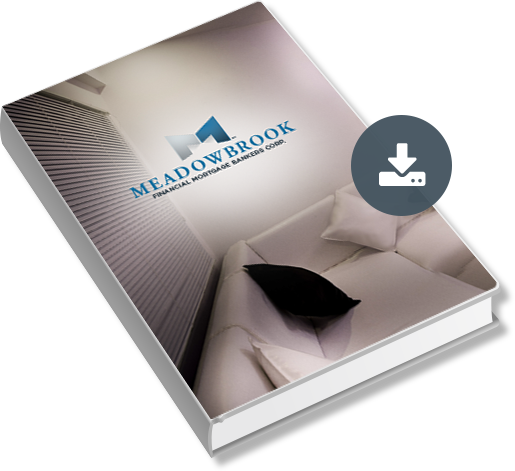Search Blog Posts by Blog Topic
Job Changes and Other Factors That Affect the Home Buying Process
January 6, 2023
Can changing jobs while buying a house have an effect on your ability to get a mortgage? The short answer to this is yes, even if you’ve already received pre-approval. This is because your income and employment history play key roles in your ability to qualify for a mortgage. However, a change in employment does not necessarily have a negative impact on the home buying process. For example, if you move to a better paying documented job, you might not face any disruptions in the approval of your mortgage.
Employment and Income From the Lender’s Perspective
Unless your job comes with an end employment date, you may expect a mortgage provider to view it as ongoing and permanent. If you’re wondering how long you have to be at a job to get a mortgage, with most types of mortgages, you need to show a two-year work history. If you’ve worked at the same job or in the same industry for two years or more, you typically don’t need to answer any more questions on this front.
If you wish to get a mortgage without two years of work history, you may expect mortgage providers to look at various aspects. These include:
- Your qualifications
- The financial health of your employer and its industry
- Periods and reasons of unemployment
- The frequency at which you change jobs
- Any recent increase in pay/responsibilities
What Mortgage Providers Wish to Know About Job Changes
Getting approved for a mortgage usually requires that you provide at least a two-year work history. If the time you’ve spent at your existing job falls short of this mark, or if you’ve switched jobs recently, you may expect your mortgage provider to seek more information. Most importantly, your lender would want to know what impact the change has had on your income, and thereby, your ability to make repayments.
Your lender might ask you why you changed your job. If you’ve changed jobs multiple times over a short span of time, you might need to explain the reason.
Looking to Purchase a Home on Long IslandContact Us
You may actually change your job a few weeks or months before you begin the process of getting a mortgage without it affecting the outcome of the process, provided it comes in the form of a better position or higher pay. However, if a lender looks at your new job less promisingly than you do, you might have trouble getting the desired mortgage.
Can You Change Jobs While Buying a House?
Changing jobs while buying a house, especially if you’ve already applied for a mortgage, may lead to delays, and it also brings with it the possibility of a reversal in the lender’s decision. Once you switch jobs, underwriters need to take a complete relook at your application, basing it on details from your new job. Besides, depending on the type of switch you make, a lender might view the stability of your employment.
If you’ve changed your job after receiving preapproval, proactively informing your lender about it and providing the offer letter, a written Verification of Employment (VOE), and your most recent pay stub is a good idea. Even in this case, you may expect some delays.
Acceptable and Inappropriate Job Changes
Just what happens if you change jobs while buying a house depends on what the switch entails. In case you think that your loan officer might view the change as a red flag, you may want to delay changing the job until the closing is complete.

Acceptable Changes
Some instances of job changes don’t hamper the loan application process.
Higher income, same industry.
Consider this – you’ve been working at the same hotel for over 10 years, and you have a job offer from a competitor that comes with a 20% increase in income. In this case, you check all the basic parameters for getting a mortgage. You have work history that is more than two years, you’ve held on to your last job for a while, your new job belongs to the same industry, and your industry (hospitality) is fairly stable. If anything, the hike in pay will only work as a plus.
Moving to the next level.
If your new job involves moving up the ladder, such as advancing from being the vice-principal of a school to a principal, a lender would view this change as favorable, all the more so if the new job comes with a lengthy contract.
Inappropriate Changes
Even if your new job pays you more than your existing one, it’s not necessary that a lender would look at it with favor. For example, letting go of a salaried job to work on a commission or bonus structure might not bode well with your lender even if the latter involves making more money than you do now. This is also the case if you switch from being a W-2 employee to a contract employee or a self-employed individual, because it interrupts the paper trail of your work history.
Moving to a different industry, taking up a lower position, or switching to a job that comes with no change in pay or responsibilities might get your lender to think twice. If your new job comes with a preset termination date of three to five years, it’s reason enough for your lender to be wary. A lender might also refrain from approving your application if it feels you can’t hold on to the same job for an extended duration and are prone to job hopping.
What Else You Should Not Do While Getting a Mortgage
While changing jobs when trying to buy a house might not have a detrimental effect on the process, there are a few things you should avoid, not just before applying for a mortgage, but until the closing is complete. This is because your mortgage provider may pull your credit report at any point until this stage.
Looking to Purchase a Home on Long IslandContact Us
Steer Clear of Making Large Purchases
You should ideally avoid making large purchases before or during the home buying process, no matter whether you pay for it using credit or cash. If you make a large purchase on credit, it has an adverse effect on your credit utilization rate and debt-to-income (DTI) ratio, both of which play crucial roles in determining your creditworthiness. If you pay for a large purchase with cash, it brings down the amount you may put toward your home’s down payment. Consequently, it’s best that you delay making any large purchase until the closing of your mortgage.
Refrain From Opening New Forms of Credit
Every time you apply for any type of credit, be it a credit card or a personal loan, your credit score drops by a few points. Given that a mortgage provider can pull your credit report at any time before the loan’s closing, a negative change in your credit report may have an adverse effect on the approval of the loan or the terms you get.
For example, a slight drop in your credit score may get it to move from excellent to very good, or from good to fair. In case of your former, your lender might still offer you the mortgage, but with a higher interest rate. In case of the latter, it may even choose to withdraw its offer completely.
This also applies when it comes to co-signing a loan, because, you, in essence, are a co-borrower, and the lender will pull your credit report. If you co-sign on a loan, you may expect it to increase your DTI ratio. Co-signing a credit card will have a bearing on your credit utilization rate. Besides, if the primary borrower misses making payments or defaults on the loan, it will have a negative effect of your credit score.
Closing Existing Revolving Forms of Credit
While paying off your debt is great, you might want to think twice before closing any revolving forms of credit. These include credit cards as well as lines of credit. Closing an existing credit card (or line of credit) brings down the average age of your credit accounts, and the older the account, the more pronounced the effect. In addition, closing an existing account may increase your credit utilization rate, which, in turn, has a negative effect on your credit score. As a result, if you plan to close any type of revolving credit account, consider waiting until the closing of your mortgage.

Missing Making Payments
Payment history plays a key role in the calculation of your credit score so it’s crucial that you make all your payments on time. These include credit card and loan payments as well as utility bills. Remember that even a single late payment has a negative effect on your credit score, and this can be a bigger problem than you imagine if it happens after the pre-approval of your mortgage and before its closing.
Depositing a Lot of Money
If you’re making a large deposit into your bank account during the process of getting a mortgage, you may expect extra scrutiny. While payroll deposits and bank account transfers are typically alright, prepare to offer an explanation if you’re making any other type of large deposit. Even if you have a perfectly valid reason, the to-and-fro usually leads to slowing down of the process.
The reason for the scrutiny is lenders wish to ensure that the money comes from a legitimate and documented source. If the deposit comes with a paper trail, you’re usually good to go. If you’re anticipating receiving a gift to help with your down payment or plan to deposit cash that you’ve been saving for years, it’s best that you inform your loan officer about it at the onset to avoid any complications at a later stage. If you don’t plan to use the money for down payment, consider putting off depositing it into your account until the closing of the mortgage.
Not Anticipating Right
A 2021 Bankrate/YouGov survey shows that 33% of baby boomer buyers (57 years to 75 years old) have some regrets about the home they purchase, and this number increases to 64% with millennial homebuyers (25 years to 40 years old). While 21% of millennials said that maintenance costs are higher than estimated, 13% feel that their mortgage payments are too high. 13% of millennials also think that they end up overpaying for their houses.
Looking to Purchase a Home on Long IslandContact Us
Bear in mind that once you buy a house, it’s not easy to recuperate your money by hoping to sell it quickly. In fact, if you have to sell your home because you can’t keep up with your mortgage payments, there’s a possibility that you’ll end up losing money in the process because of all the fees and taxes associated with buying and selling a home. Therefore, it’s crucial to determine how expensive a house you can actually afford before you apply for a mortgage.
Not Knowing How Loan Points and PMI Work
You should ideally understand how private mortgage insurance (PMI) and loan points work before applying for a mortgage. Loan points let lenders reduce the interest rates of loans and are typically best used if you plan to live in the home you purchase for seven years or more. PMI, on the other hand, lets you pay less than 20% as down payment. You stop making payments toward your PMI once you acquire 20% equity in your home.
Conclusion
Changing a job shortly before or after you apply for a mortgage typically does not have an adverse affect if the switch entails a higher paying job in the same industry. However, if you move to being a contract employee from a W-2 employee or move to a new industry, your lender might not view the switch with favor.
It’s also important that you refrain from making large purchases, applying for new forms of credit, and being lax about your creditworthiness. Calculating just how much money you’ll need to spend as a homeowner is equally important. If you’re in doubt about any financial aspect of buying a home, it’s ideal that you discuss every aspect with your mortgage provider ahead of time.
Ready To Get Started?
Fill out the form below and a mortgage professional will get back to you shortly.

First Time Homebuyer’s Guide
Considering homeownership but not sure where to begin? The Meadowbrook Financial Mortgage Bankers Corp. guide to home buying will make the process easy all in one packet.
Recent Articles

An In-Depth Condo Buying Guide
2 July, 2025One reason why many first-time homebuyers prefer condos over single-family homes is that they are typically more affordable and give them the means to start…

Should You Buy an Under-Construction, New Build, or…
18 June, 2025The dream of owning a home often comes with having to make an array of decisions, and perhaps none is more crucial than choosing the…

How Do Pets Influence Homebuying?
1 May, 2025Adding a furry friend to your family can bring so much joy to your life. Whether it’s a dog, cat, bunny, or other, they’re sure…


